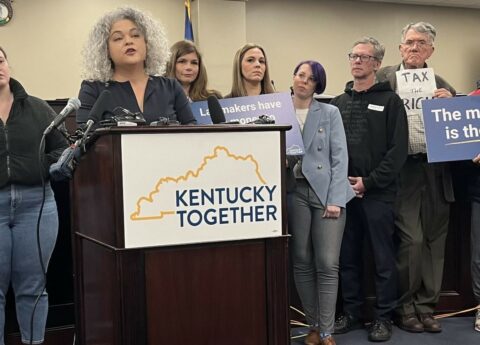Report Release: “2013 Is a Good Year to Repair (if Not Replenish) State Rainy Day Funds“
Kentucky Falls Short on Preparing for Future Recessions
Rainy day fund fix would protect state, improve financial stability
Kentucky should fix a flaw in the design of its rainy day fund that hindered the state’s ability to weather the last recession and leaves it vulnerable to future downturns, according to a report released today by the Center on Budget and Policy Priorities, a non-partisan policy research organization based in Washington, D.C.
Kentucky’s rainy day fund, the budget reserve that the state can tap when a recession causes a sudden drop in revenue, is generally capped at a level far too low for the state to properly prepare for economic downturns.
“Now is not the time to put more money into the rainy day fund because of the still-weak economy and serious budget needs,” said Jason Bailey, Director of the Kentucky Center for Economic Policy. “But the state can act to lift the cap on our rainy day fund so we don’t find ourselves in the same bad situation when the next recession rolls around.”
As the report indicates, the mechanism by which Kentucky puts money in its rainy day fund using year-end surpluses limits the size of the fund to 5 percent of the state’s General Fund receipts. A cap of around 15 percent would be more appropriate. At the start of the recent recession, the state’s fund only had about 2.5 percent of General Fund receipts.
Across the country, states with strong rainy day funds were able to avert billions in cuts to services like education and health care during the last two recessions, while states with weaker rainy day funds faced greater turmoil as they scrambled to balance their budgets.
With a higher cap, Kentucky could have built a larger rainy day fund and reduced the size of the huge cuts to higher education, public health, public safety and other services in recent years.
“As they recover from the recession replenishing rainy day funds cannot yet be a priority for states. But, now is the ideal time to fix their design flaws,” said Elizabeth McNichol, a senior fellow at the Center on Budget and Policy Priorities and author of the report released today.
###
The Center’s full report can be found at: http://www.cbpp.org/cms/index.cfm?fa=view&id=3887



